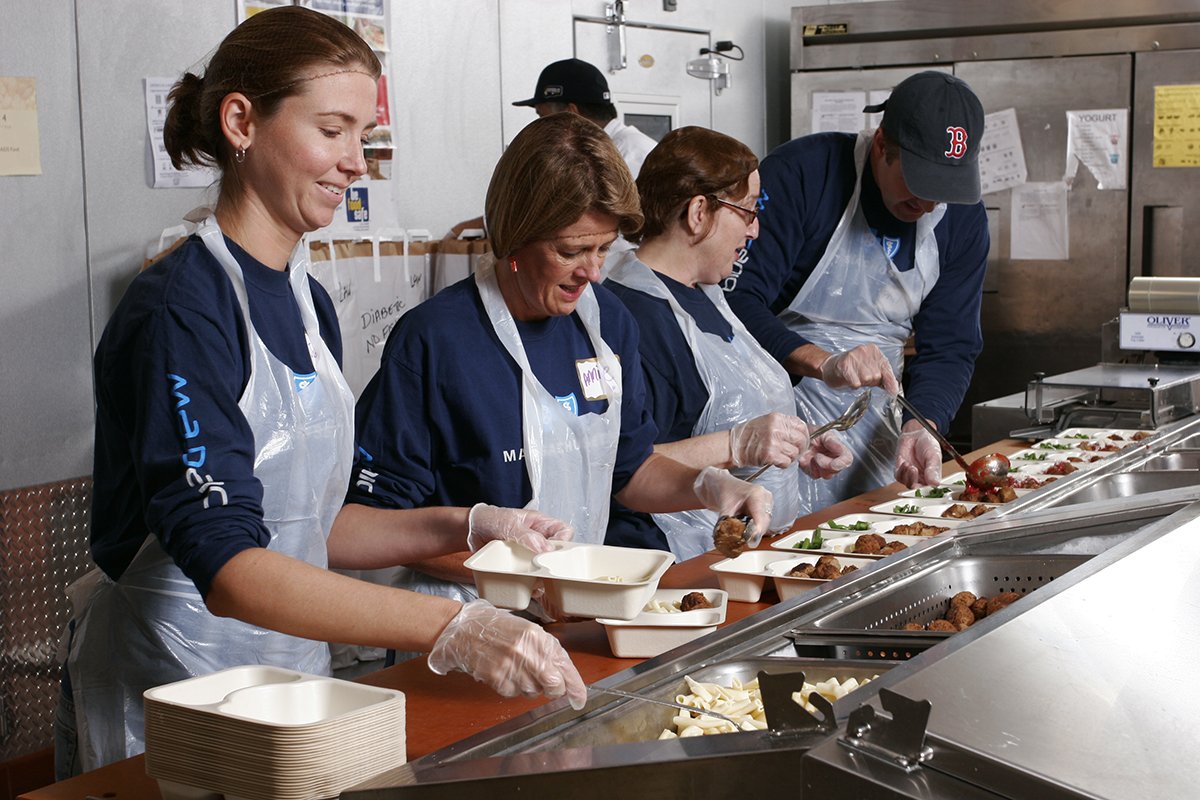A New Study Is Out to Prove That Food Can Be Medicine

Community Servings volunteers/Photo by David Carmack
A new study hopes to prove what Hippocrates said all those centuries ago: “Let food be thy medicine.”
Community Servings, a 27-year-old nonprofit that delivers medically tailored meals to chronically and critically ill Massachusetts residents, is teaming up with Massachusetts General Hospital to put its food-as-medicine model to the test.
“[We want to] move toward a data-driven model where we can actually demonstrate to healthcare leaders and insurers that there’s an ROI [return on investment] benefit from investing in feeding critically ill and often very poor residents of Massachusetts,” explains Community Servings CEO David Waters.
The group’s meals are formulated based on a patient’s specific medical needs—providing the nutrients that an individual with, say, diabetes or HIV needs most. They’re also meant to combat data that shows malnourished patients stay in the hospital longer, and rack up costlier stays while they’re there.
The research, results from which will be available in approximately 30 months, will be funded by a prestigious, nearly $360,000 grant from the Robert Wood Johnson Foundation’s Evidence for Action Program. Robert Wood Johnson has given only 16 such grants since the program was created in 2015.
Community Servings and Mass General have collaborated on two prior studies, but the latest will be the most comprehensive. A team from Mass General, in conjunction with the Massachusetts Department of Public Health, will pore over data collected from 3,000 people fed by Community Servings over the past five years, as well as 9,000 people who were not. They’ll compare insurance claims, hospital readmission rates, emergency room visits, and more, in the hopes of proving that medically tailored meals can affect health outcomes.
“On the academic side of things, people really wanted to see the data in a very rigorous and controlled setting,” explains Seth Berkowitz, the Mass General doctor leading the research. “We want to provide the evidence base that really lets people making health policy and insurance coverage and benefit design decisions say, ‘This is a good use of the premium dollars or the state funding.'”
If the study yields positive results, Waters says, it would not only allow Community Servings to reach more people—as it is, the group feeds roughly 2,000 individuals each day—but give the food-as-medicine model the gravitas it needs to catch on nationally.
“There is potential for significant cost savings and improved outcomes if we can prove that having your insurer or your provider actually fund meals for you, even for a short period, could have a significant outcome,” Waters says. “There is the need for low-cost interventions and keeping people out of the hospital.”


